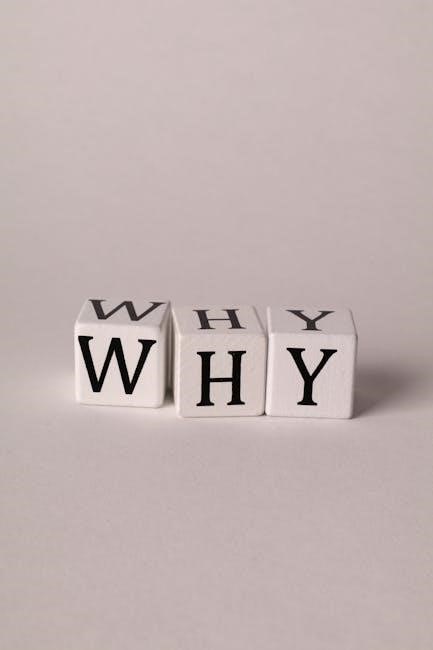Recovery Jeopardy is an interactive tool for group therapy, focusing on substance use and mental health recovery. It provides educational and engaging questions to foster discussion and learning, with a downloadable PDF version available for easy access.
Overview of Recovery Jeopardy
Recovery Jeopardy is a unique, interactive game designed for group therapy, focusing on substance use and mental health dual recovery. It combines educational content with engaging gameplay to foster learning and discussion. The game is available in a downloadable PDF format and can also be played online via the Jeopardylabs platform. Questions cover topics such as post-acute withdrawal symptoms, relapse warning signs, and coping strategies, making it a valuable tool for groups with some recovery experience. This format encourages active participation and deeper understanding of recovery concepts.
What is Recovery Jeopardy?
Recovery Jeopardy is an interactive game for group therapy, focusing on substance use and mental health recovery. It offers educational questions to promote learning and discussion.
Purpose and Structure
Recovery Jeopardy is designed to engage participants in interactive learning, fostering accountability and understanding of recovery concepts. Its structure resembles the classic Jeopardy format, with categories covering topics like substance use, mental health, and relapse prevention. Questions are tailored to encourage discussion and reflection, making it ideal for group therapy settings. The game is organized into rounds, with varying difficulty levels to accommodate different stages of recovery knowledge. This format ensures a balanced mix of education and entertainment, promoting active participation and teamwork among players.
Benefits of Recovery Jeopardy
Engagement and Educational Value
Recovery Jeopardy enhances engagement by combining fun and learning, fostering group dynamics and teamwork. It provides educational value by covering dual recovery topics in an interactive format.
Recovery Jeopardy offers a dynamic and engaging approach to learning, making complex topics more accessible and fun. Its game-like format encourages active participation, fostering a sense of accomplishment and teamwork. By covering essential topics such as substance use, mental health, and relapse prevention, it provides valuable insights and practical knowledge. The structured questions and answers help participants reflect on their experiences and gain a deeper understanding of recovery principles. This interactive tool is particularly effective in group settings, promoting collaboration and meaningful discussions.

Creating Recovery Jeopardy Questions
Designing effective Recovery Jeopardy questions requires clarity, relevance, and engagement. Ensure they align with recovery themes and promote meaningful group discussions.
Designing Effective Questions
Creating impactful Recovery Jeopardy questions involves balancing clarity and challenge. Focus on key recovery concepts, such as relapse prevention and coping skills, to ensure relevance.
Use simple language, avoid ambiguity, and ensure questions are engaging. Tailor them to the group’s experience level, incorporating real-life scenarios for relatability and fostering meaningful discussions.
Tailoring for Specific Groups
Tailoring for Specific Groups
Adapting Recovery Jeopardy questions for specific groups ensures relevance and effectiveness. Assess the group’s recovery experience and tailor questions to their knowledge level and needs.
For newer groups, focus on foundational concepts like relapse warning signs and coping skills. For more experienced groups, include advanced topics such as dual diagnosis and long-term recovery strategies. Incorporate diverse perspectives to address mental health and substance use challenges, fostering inclusivity and engagement.
Recovery Jeopardy PDF Version
The Recovery Jeopardy PDF is downloadable, offering a convenient offline resource for group therapy. It includes questions and answers tailored for various recovery stages and needs.
Availability and Downloading
The Recovery Jeopardy PDF is readily available for download, providing a user-friendly format for printing or digital use. It can be accessed directly from the official website, ensuring easy distribution for group therapy sessions. The PDF version is free of charge and requires no registration, making it accessible to a wide audience. This format allows facilitators to prepare materials in advance, ensuring smooth and engaging group activities focused on recovery education.
Playing Recovery Jeopardy Online
Recovery Jeopardy can be played online via the Jeopardylabs platform, offering an interactive and accessible way to engage with recovery topics. This digital format allows for easy participation and tracking of progress, making it a flexible option for group therapy sessions and individual learning.
Jeopardylabs Platform
The Jeopardylabs platform offers a user-friendly interface to host and play Recovery Jeopardy games online. It allows facilitators to create customizable boards with recovery-focused categories and questions. Players can engage in real-time, making it ideal for group therapy sessions. The platform supports tracking progress and provides an interactive experience that enhances learning and participation. Its accessibility ensures that recovery education can reach a wide audience, making it a valuable tool for therapy groups and individuals alike.

Topics Covered in Recovery Jeopardy
Recovery Jeopardy covers essential topics such as substance use, mental health, relapse prevention, and coping skills. It also addresses support systems, dual diagnosis, and recovery milestones, ensuring a comprehensive understanding of the recovery journey.
Substance Use and Mental Health
Recovery Jeopardy addresses the intersection of substance use and mental health, offering questions on addiction science, dual diagnosis, and recovery strategies. It explores biological factors, mental health symptoms, and the impact of substance use on overall well-being. The game also covers relapse triggers, coping mechanisms, and the importance of support systems. By focusing on these topics, Recovery Jeopardy provides a comprehensive tool for understanding the complexities of addiction and mental health, fostering education and discussion in group therapy settings.
Relapse Prevention Strategies
Recovery Jeopardy includes questions on identifying triggers, coping skills, and support systems to prevent relapse. Topics cover recognizing early warning signs, developing healthy habits, and leveraging accountability. The game also addresses post-acute withdrawal symptoms (PAWS) and their impact on recovery. By focusing on practical strategies, Recovery Jeopardy helps participants build resilience and maintain long-term sobriety, offering a valuable resource for group therapy sessions aimed at sustaining recovery.

Sample Recovery Jeopardy Questions
What is a symptom of alcohol poisoning? What is the name of the mutual support program for people affected by substance use? How many college students are unintentionally injured during/after drinking?
Examples and Explanations
Sample questions include: “What is a symptom of alcohol poisoning?” and “What is the name of the mutual support program for people affected by substance use?” These examples are designed to provoke thought and discussion. For instance, the first question highlights physical signs of alcohol poisoning, while the second focuses on community resources. Such questions engage participants and encourage active learning, making them valuable tools for group therapy settings focused on recovery and education.

Using Recovery Jeopardy in Group Therapy
Recovery Jeopardy promotes engagement and active participation in group therapy, fostering group dynamics and encouraging open discussions. It enhances recovery by transforming learning into an interactive experience.
Fostering Group Dynamics
Recovery Jeopardy enhances group therapy by fostering collaboration and mutual support. The interactive format encourages teamwork, breaking the ice and creating a safe space for sharing experiences. Participants engage in discussions, building trust and understanding. The game’s structure promotes active listening and respect, strengthening bonds among group members. By addressing recovery topics in a structured yet informal way, it helps participants connect on a deeper level, fostering a sense of community and shared purpose. This dynamic approach makes learning and growth a collective effort.
Encouraging Active Participation
Recovery Jeopardy is designed to encourage active participation in group therapy. The game-like format makes sessions more engaging, helping individuals feel comfortable sharing their experiences. By addressing recovery topics through interactive questions, participants are motivated to contribute and learn from one another. This approach fosters a sense of involvement and accountability, making the recovery process more dynamic and effective for everyone. Active participation is key to personal growth and collective understanding in a supportive environment.
Tips for Facilitators
Facilitators should create a safe, engaging environment, guiding discussions without dominating them. Encourage open dialogue, ensuring all participants feel heard and valued. Focus on fostering connections and learning through the game, while maintaining a respectful and supportive atmosphere. This approach enhances the educational and therapeutic benefits of Recovery Jeopardy, making it a valuable tool for group therapy sessions.
Leading Effective Discussions
Facilitators should encourage open and reflective dialogue by asking follow-up questions. This helps participants connect personal experiences with recovery concepts. Active listening is key to creating a safe space for sharing. Maintaining a non-judgmental tone fosters trust and promotes deeper engagement. By guiding the conversation without dominating it, facilitators ensure that all voices are heard. This balanced approach enhances the educational and therapeutic value of Recovery Jeopardy, making it a powerful tool for group therapy settings. Regular feedback and adaptation to group needs further optimize the discussion experience.

Measuring Effectiveness
Evaluation involves participant feedback, assessing engagement, and tracking knowledge retention. Regular surveys and group discussions help gauge the game’s impact on recovery understanding and progress.
Evaluation and Feedback
Evaluation of Recovery Jeopardy involves assessing its effectiveness through participant feedback and engagement levels. Surveys and group discussions help measure how well the game improves recovery knowledge and fosters participation. Feedback is collected to identify strengths and areas for improvement, ensuring the game remains relevant and impactful. Regular reviews of player responses and progress tracking further refine the content, making it a valuable tool for group therapy settings. Continuous feedback loops ensure the game evolves to meet the needs of diverse recovery groups.

Cultural Adaptations
Recovery Jeopardy is adaptable to diverse cultural contexts, ensuring inclusivity and relevance. The PDF version allows modifications to suit different cultural backgrounds and specific group needs effectively.
Adapting for Diverse Groups
Recovery Jeopardy is designed to be adaptable for diverse groups, ensuring inclusivity and relevance. The PDF version allows modifications to suit different cultural backgrounds and specific group needs effectively. This flexibility ensures that the game remains engaging and educational for participants from various cultural contexts.
Recovery Jeopardy serves as a powerful tool for fostering engagement and education in group therapy settings. By addressing substance use and mental health recovery through interactive questions, it promotes meaningful discussions and learning. The availability of a downloadable PDF and online versions ensures accessibility for diverse groups. This innovative approach not only enhances understanding but also supports individuals in their recovery journey, making it a valuable resource for facilitators and participants alike.
